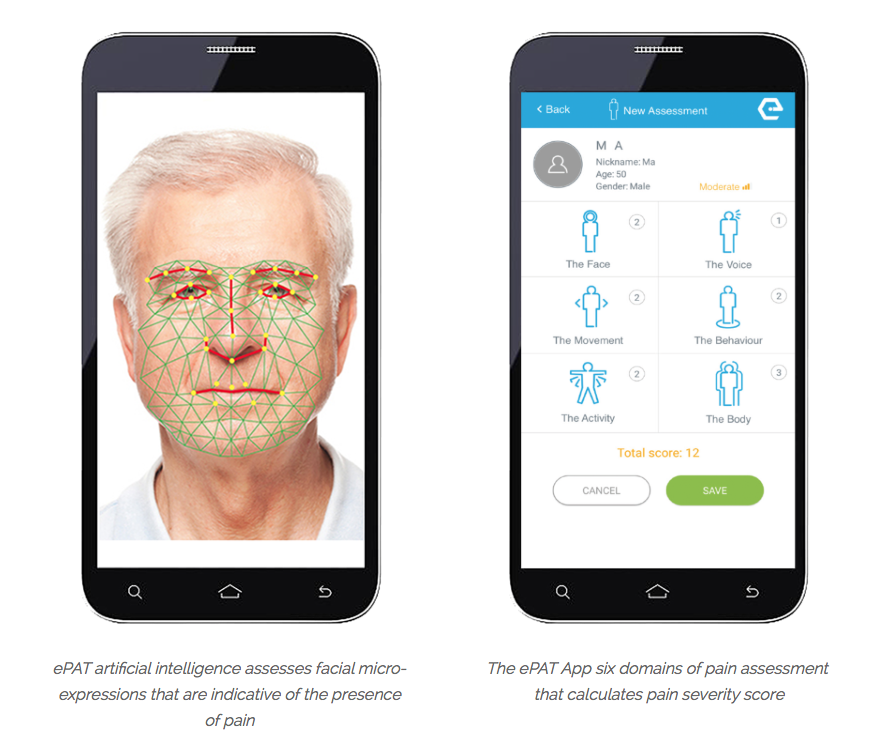This app can tell doctors how much pain you’re in, even when you can’t

An app that measures pain by analysing facial “micro-expressions” is expected to be available later this year.
ePAT Technologies (ASX:EPT) developed the app to help carers determine when someone who can’t communicate well is in pain.
An initial version of the app for patients with dementia was cleared for use as a medical device in Australia by the TGA in July, and a second version for young children is in development.
The app, which is based on work by Curtin University researchers, uses artificial intelligence to help carers determine a pain “score” for patients, ePAT managing director Philip Daffas said.
“The app uses the smartphone camera to record a short video of the patient’s face and analyses the images using facial recognition algorithms,” Mr Daffas told Stockhead.
“Next, the caregiver uses the app to answer questions such as how the patient is moving and vocalising their pain. Finally, the app calculates an overall pain score and stores the result, allowing the caregiver to monitor medication and treatment over time.”

Mr Daffas said that by providing an objective score, the app would help carers see whether particular pain treatments were working. He said the app worked across patients of different genders and ethnicities because the facial markers for pain were the same.
“Regardless of cultural background, age or gender, research has found that facial micro-expressions are universal and expressed in the same way. There are distinctive facial markers associated with the presence of pain in adults and similarly in children, but with a larger number of pain indicators because of the morphological development of the face and rapid growth of the skull in early life.”
As well as being included on the TGA Australian Register of Therapeutic Goods as a Class 1 medical device in July, the company also received CE marking for marketing in Europe. ePAT says the two regions represent about 30 per cent of the app’s potential global market and the next challenge will be to receive FDA approval in the US.
ePAT plans to market the app to healthcare professionals directly as well as consumers through the App Store and Google Play from Q4 2017.
The results of a trial using ePAT successfully to measure pain in 40 patients with moderate to severe dementia are due to be published in the Journal of Alzheimer’s Disease vol 60, no 1.
ePAT’s shares have traded between 2c and 5c over the past 12 months. The company spent $648,000 in the June quarter, leaving $2.63 million in cash, and expects to spend $997,000 in the current quarter.
This article does not constitute financial product advice. You should consider obtaining independent advice before making any financial decisions.
UNLOCK INSIGHTS
Discover the untold stories of emerging ASX stocks.
Daily news and expert analysis, it's free to subscribe.
By proceeding, you confirm you understand that we handle personal information in accordance with our Privacy Policy.








